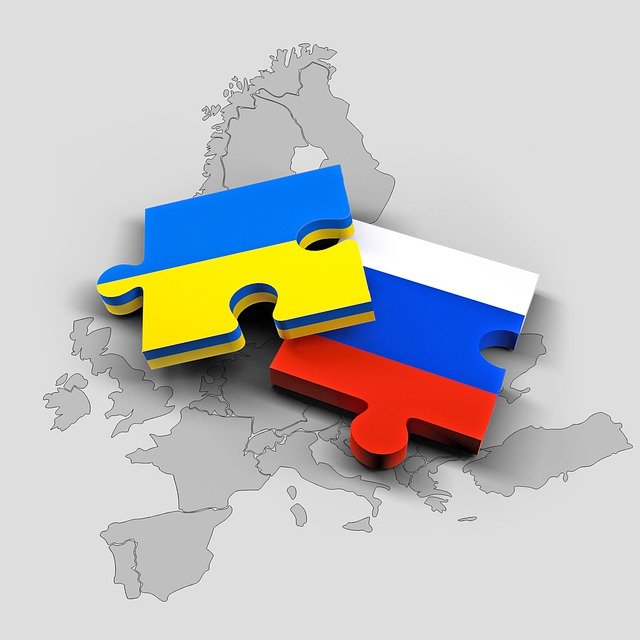 Let’s start with the same caveat we began with in Part One. We’re not trivialising the horrible human tragedy that continues to unfold in Ukraine. Obviously, there are far more important aspects to this conflict than how it affects the car industry. But dealing with that bigger picture isn’t what we’re here for — as a car and driving blog, we can only focus on how this truly global event impacts our own area of interest.
Let’s start with the same caveat we began with in Part One. We’re not trivialising the horrible human tragedy that continues to unfold in Ukraine. Obviously, there are far more important aspects to this conflict than how it affects the car industry. But dealing with that bigger picture isn’t what we’re here for — as a car and driving blog, we can only focus on how this truly global event impacts our own area of interest.
So with that repeated, let’s get into why the conflict is battering car manufacturers, starting with the supply problem.
Harnesses, Neon, Palladium and more
The semi-conductor supply crisis showed us how a shortage of just one component can disrupt a global industry. Now the Ukraine conflict is repeating the lesson — this time with wiring harnesses.
A wiring harness is a humble, yet vital, component of every modern car. Its job is to hold together the three miles of wiring that connects every electrical component in the vehicle. They’re not exactly an optional extra.
Ukraine supplies around about one-quarter of the wiring harnesses for European manufacturers. Or it did until February 24th, when the war froze production in its tracks. The disruption immediately hit major manufacturers, and car giants BMW and the VW Group were forced to stop or reduce operations in key European factories.
Brands are scrambling to find replacement suppliers, but it’s not easy. Because harnesses are made to fit a particular vehicle configuration, they are more-or-less bespoke for each model. They’re also fiddly to produce, involving a lot of skilled manual work. Setting up the equipment for new manufacturers is costly too, and takes time.
The good news is that some Ukrainian plants have restarted production, although for how long is anyone’s guess. The final headache for the industry is how to get the bulky products out of the country, given that many Ukrainian truck drivers are now serving in the armed forces.
The war is also impacting on supply of neon gas, which is used in semi-conductor production. Ukraine furnishes around 25% of global demand.
And then there are the Russian raw materials. Russia currently supplies about 37% of the world’s palladium, a precious metal used in catalytic converters, in addition to vital titanium (13% global production), platinum (10.5%), aluminium (5.4%), copper (4%), refined copper (3.5%) and cobalt (4.4%). Although precious metals aren’t yet sanctioned, the suspension of SWIFT payments and logistic problems are hampering supply.
Add energy costs. And inflation.
All these supply issues will increase manufacturing costs, but unfortunately we’re not done yet. As we’re all too aware, energy costs are skyrocketing — and producing a car is a hugely energy intensive process. On top of that, inflation rates are rising, raising all the car industry’s costs.
What does it all mean? Putting it together, it doesn’t take an economics expert to see that:
- New car prices will have to rise to reflect increased costs.
- Inflation means that consumers have less to spend.
- Consumer confidence is also low, making them less likely to spend.
- Manufacturers will be left trying to sell a more expensive product to people who can’t afford to buy it.
So, that’s all good then.
Carmageddon for the industry?
It’s pretty clear that the war in Ukraine is a major challenge for the European car industry. Given their other problems (see Part One for more on this), CEOs must feel like they’ve gone 10 rounds with Mike Tyson.
But what’s equally clear is that the industry is resilient, and it has survived plenty of crises before. In time, we’re confident it will adapt.
For UK drivers, none of it is great news (unless you have a car to sell). In sum, new cars will once again become harder to get hold of and more expensive.
But without being preachy about it, we think you’ll agree that’s pretty small potatoes compared to the suffering at the epicentre of this war.
The WVS blog covers a wide range of automotive topics, from the contentious to the light-hearted. We are an independent garage specialising in the VW group marques, including Audi, Volkswagen, Skoda and SEAT. WVS provides services, repairs and MOTs, delivering a main dealer level of care at affordable prices. To book your vehicle in, or for any enquiries, get in touch.
